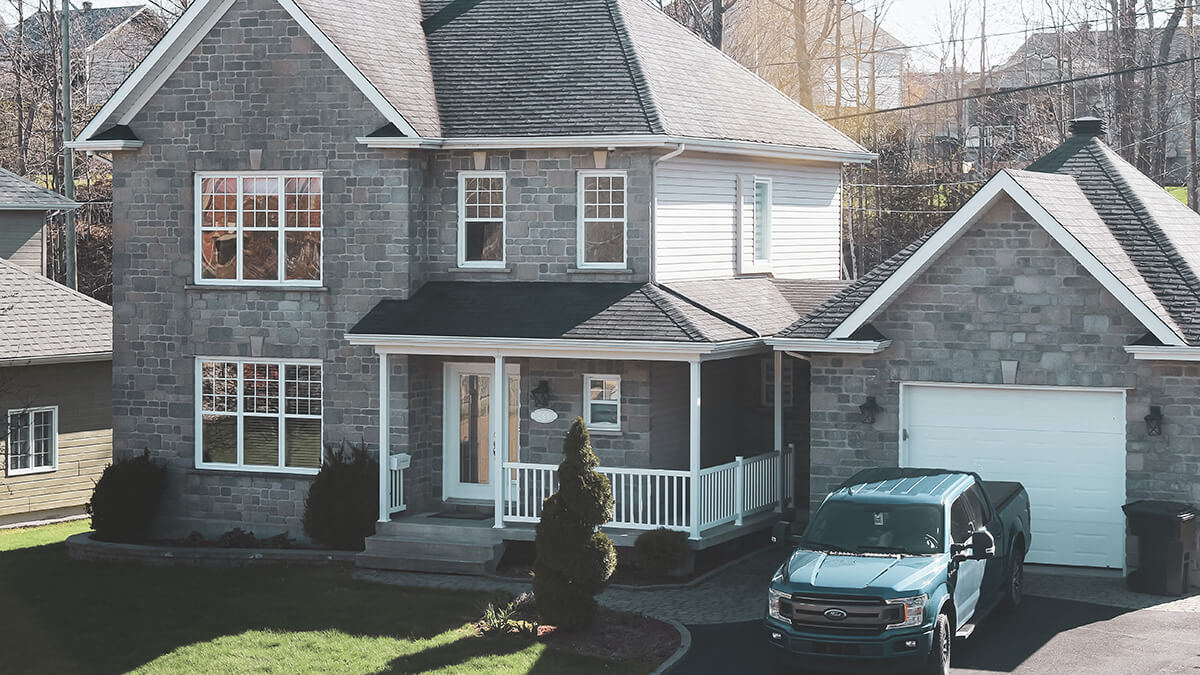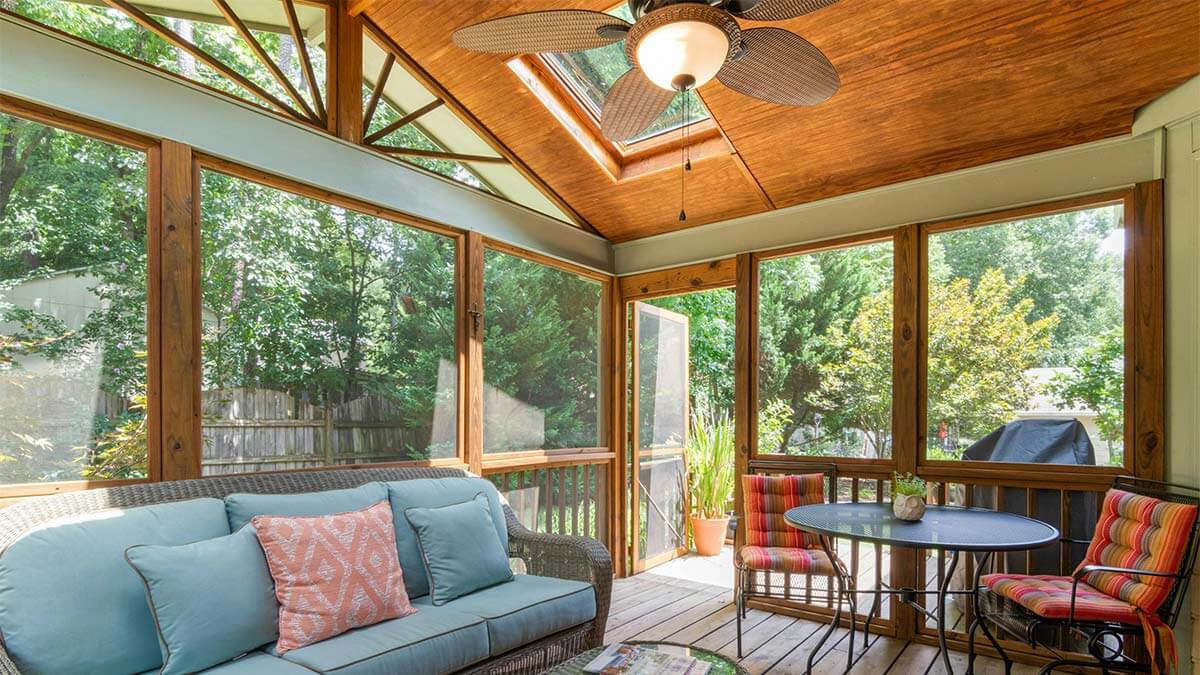The national median cost for a home as of June 2024 is $426,900, which is a 4.1% increase from the previous year’s $410,100 median. This demonstrates real estate’s role as a lucrative and relatively stable investment compared to other asset classes. Since home sales can impact financial gain, it’s important to consider how long you should live in your home before selling.
Financial experts recommend a minimum of two years to avoid hefty capital gains taxes, while the real estate industry suggests five years to recoup initial buying costs. In this guide, we’ll help you determine how long you should live in your home before selling based on your home equity, market conditions, and personal circumstances.
For those ready to sell today, leveraging services like iBuyer.com can expedite the process. We provide cash offers and a streamlined selling process to simplify home sales.
Living in a Home Before Selling
Compare Cash Offers from Top Home Buyers. Delivered by Your Local iBuyer Certified Specialist.
One Expert, Multiple Offers, No Obligation.
Do you want to build equity?
Home equity is the current market value of your home minus any liens you have on the property, like your mortgage. It’s how much of your home you own.
For example, if your home’s current market value is $350,000, and you still have $200,000 to pay on your mortgage, your equity is $150,000, or about 43%.
The more home equity you have, the better off you are. This is because you own more assets.
However, you can also use your equity as a financial tool. For instance, you can use it to buy additional real estate or renovate your current home. You can also use home equity to refinance high-interest debt or cover emergency expenses.
So to know how long to live in a house before selling it, you need to consider how much home equity you want to build. The longer you live in a home, the more equity you’ll have.
How soon can you sell your house?
Technically, you can sell your home immediately after you purchase it. But you’ll end up losing money if you choose to do this. So instead of asking how soon you can sell, the better question is, “How long should you own a house before selling it?”
Financial experts say it’s best to wait at least two years before selling. This is because of capital gains tax, which we will discuss below.
On the other hand, the real estate industry often says five years is the minimum time you should wait before selling. Five years is the average time it takes to recoup all the costs involved with buying a property and allow you the opportunity to profit.
But, if you have no reason to sell, it’s worth holding onto the property as long as possible. It will continue to increase in value.
Homes generally appreciate an average of 3-5% each year. If you have 100% home equity, you will significantly increase your return on investment (ROI) the longer you keep the property.
Consider this: as stated, existing home prices were up 2% from November 2022 to November 2023. If your home was worth $300,000 in November 2022, it would now be worth $306,000. With 100% home equity, you would make an extra $6,000 in net profits.
So while you could’ve sold your home, you also could’ve waited and realized more gains. It just depends on how flexible you are and how much equity you have.
Why it might be worth waiting
The ideal situation is that you don’t lose money when you sell your home. However, breaking even is better than losing money. To help you realize net profits in selling your home, here are some reasons to reconsider selling.
Capital gains tax
As mentioned, financial experts recommend waiting at least two years before you sell your home to avoid capital gains tax. Capital gains tax is the net profits you stand to make from selling your home. Residential real estate is a taxable asset, the same as stocks, bonds, and other assets.
Selling your home after one year or less of ownership means paying short-term capital gains tax. This tax rate is the same as your ordinary income tax bracket, which can be up to 37%. Yet, if you sell the home after owning it for more than one year but less than two years, you’ll pay long-term capital gains tax, which is a lower rate, typically between 0-20%.
However, the IRS allows homeowners to profit up to $250,000 for those filing individually and $500,000 for married couples filing jointly before paying capital gains tax. But, there are two conditions.
First, you must have owned the property for at least two years. Second, it has to have been your primary residence for at least two out of the five years preceding the sale.
Hence, this is why financial experts say to wait at least two years before selling to maximize net profits.
Closing costs
When you buy a home, there is a long list of costs involved aside from the price of the property, including:
- Attorney fees
- Notary fees
- Property taxes
- Real estate commission
- Transfer taxes
These additional expenses are the closing costs. Altogether, closing costs are usually between 1-3% of the home’s sale price but can be as high as 5-6%. You want to recoup these fees before you sell, or you won’t realize a net profit.
Moving costs
The average cost of a local move is $1,250, and the average cost for a long-distance move of around 1,000 miles is about $4,900. As with closing costs, you want to recoup the moving costs before selling your home. Even with net revenue on the home sale, you could still lose money when not considering these expenses.
Financing fees
If you have a mortgage, you need to consider financing fees. The mortgage is composed of the principal, the amount of money you borrowed, and the interest, the amount the bank charges to lend you money.
Building home equity can take several years because the beginning mortgage payments go toward paying the interest, not the principal loan amount. Making more mortgage payments or payments of a higher value per payment early on can help you build home equity faster.
But if you sell too soon, you will have less home equity and lose money on interest payments.
Consider market conditions
The real estate market goes through ebbs and flows just like all other markets. You may not want to sell if it’s a buyer’s market. As the name suggests, a buyer’s market is favorable for buyers, not sellers. There is more real estate inventory than demand.
During a buyer’s market, properties tend to spend more time on the market and sell for less. Thus, if you don’t have an urgent reason to sell during a buyer’s market, it’s often best to wait until the market conditions change to receive a higher offer for your property.
Why you might want to sell
You may want to sell your home for several reasons, even if you haven’t owned it for that long or it’s not the best time to sell. Let’s review them here.
1. You need more space
Sometimes family expansions aren’t planned. Whether your family is expecting a new baby or you’ll be caring for live-in relatives, like aging parents, sometimes you just need more living space.
Maybe you’ve been given an excellent work-from-home opportunity, but you need a home office. If you need to expand your home, you may need to sell even when it’s not the most desirable time.
2. Money issues
If you’re having financial problems, you may need to consider putting up your home for sale.
Those going through a divorce, facing job loss, or experiencing significant health problems may find they can no longer afford their home. On the other hand, if you got married or had your income increase, you may want to expand.
Whether for richer or for poorer, there may be significant financial reasons to sell. Crunch the numbers and see if it makes sense for your specific circumstances.
3. It’s a seller’s market
Opposite to a buyer’s market, a seller’s market is when there’s a shortage in housing or more buyers than homes.
The last few years have been a seller’s market. Properties were getting a record number of offers, many above the asking price. As a result, it was an excellent time for many owning a house to sell.
It’s enticing to sell during a seller’s market to cash in on the profits. But of course, you need to deduct all previously mentioned expenses to see if you will actually profit.
Remember, even if you sell your home for a higher value than what you paid, you don’t make money unless you recoup all the additional costs.
How long should you live in a house before selling?
While there is no definitive answer, if you can wait for at least two years, you can avoid the significant impact of capital gains tax.
Aside from that, you’ll need to sit down and do some calculations to decide when the right time for you to sell is. Identify how much home equity you have or want to have and establish how much net profit you want to make. The longer you wait to sell, the more you stand to gain.
Sell fast with an iBuyer
So homeowner, how long should you live in a house before selling it? Now that you’ve taken in all this information, you should know what that number is for you. Maybe it’s two or five years. Perhaps it’s ten or twenty years. Everyone’s answer will be different.
But if the time to sell is now, you can sell your home quickly using iBuyer.com. Simply use our free home value estimator to begin the process!
Instant Valuation, Confidential Deals with a Certified iBuyer.com Specialist.
Sell Smart, Sell Fast, Get Sold. No Obligations.
Reilly Dzurick is a seasoned real estate agent at Get Land Florida, bringing over six years of industry experience to the vibrant Vero Beach market. She is known for her deep understanding of local real estate trends and her dedication to helping clients find their dream properties. Reilly’s journey in real estate is complemented by her academic background in Public Relations, Advertising, and Applied Communication from the University of North Florida.




